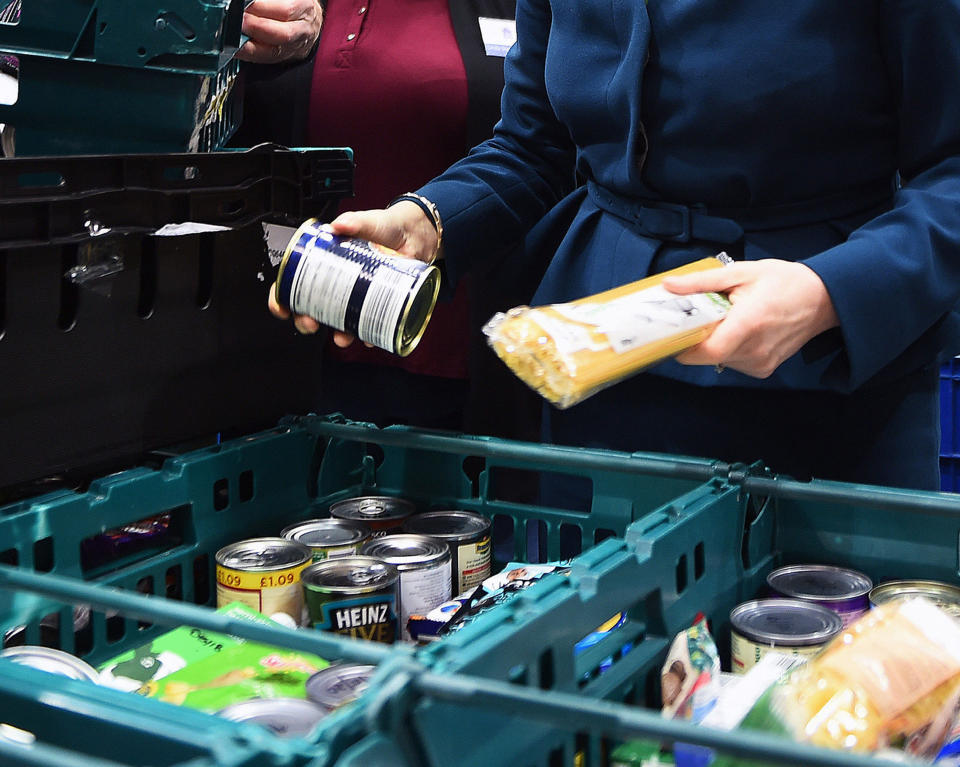UK borrowing drops - but have we paid the price for austerity?

UK government borrowing has fallen to its lowest level since 2001, with the highest budget surplus since records began as income tax receipts soared last month.
The latest figures will be welcomed by Conservative chancellor Philip Hammond, with economists agreed it gives him “headroom” to stimulate the economy in his pre-Brexit budget statement next month.
But a separate report out today suggests the UK may have paid a heavy price for government spending cuts, not only in human terms as frontline services reach breaking point but also in economic terms.
Higher tax income boosts the public finances
Official figures show the British government has borrowed £21.2bn ($27.6bn) in the tax year so far up to January, the lowest amount needed in 17 years to cover the gap between its spending and its income.
Last month the government received £14.9bn more in tax and other income than it spent, the highest January budget surplus since records began in 1993, and larger than predicted by many economists.
READ MORE: No-deal Brexit could wipe 9.3% off GDP growth
January typically sees better-than-average figures, as self-assessed income tax and capital gains tax payments flood in before the annual deadline.
Government income from VAT and corporation tax also reached record January highs of £21.4bn this year, according to the Office for National Statistics figures released today.
The cost of spending cuts

Lower borrowing levels also reflect nearly a decade of austerity since the Conservatives first came to power, with public spending now more than £40bn lower than in 2009-10.
A new analysis of official figures by the New Economics Foundation (NEF) suggests nine years of austerity has driven down British GDP, suppressing growth by £100bn in the past year alone.
READ MORE: IMF says no-deal Brexit could increase government spending
Alfie Stirling, head of economics at the NEF, said: “What [today’s figures] don’t show is the economic damage it has caused to get here.
“Whether rising homelessness, frozen benefit payments, overcrowded school classes or excessively long waits in hospital A&E services, the starved ambition and resources of our public realm have touched the lives of almost everyone.”
The borrowing figures may add to political pressure on the chancellor to reverse some spending cuts, particularly after prime minister Theresa May promised last year to “end austerity.”
Room for manoeuvre as Brexit looms
The Institute for Fiscal Studies (IFS) has said keeping spending merely at current levels, rather than continuing with planned cuts, would need the Chancellor to find another £19bn in higher growth or substantial tax rises.
Most economists welcomed today’s figures in the context of huge economic uncertainty as Brexit looms.
John Hawksworth, chief economist at PwC, said: “So far the public finances seem to have been largely immune to the adverse effects of Brexit-related uncertainty, because this has mostly affected business investment.”
He said the numbers gave the chancellor “room for manoeuvre” in his Spring Statement to stimulate the UK economy as Brexit looms on 29 March.
Samuel Tombs, chief UK economist at Pantheon, said strong growth in income tax and VAT suggested the economy “probably hasn’t lost as much momentum” as many gloomy business surveys implied.

 Yahoo Finance
Yahoo Finance 